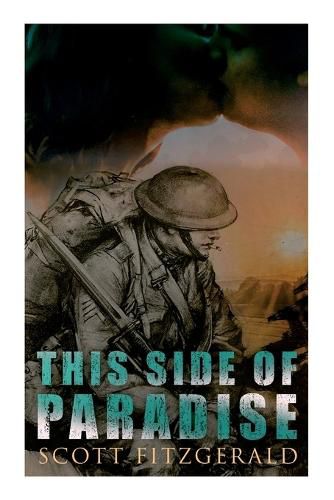Readings Newsletter
Become a Readings Member to make your shopping experience even easier.
Sign in or sign up for free!
You’re not far away from qualifying for FREE standard shipping within Australia
You’ve qualified for FREE standard shipping within Australia
The cart is loading…






In "This Side of Paradise," F. Scott Fitzgerald skillfully weaves a narrative that captures the tumultuous spirit of the Jazz Age, featuring the life of Amory Blaine, a young man coming of age during a time of dramatic social change. The novel employs a rich, lyrical prose style that reflects both the exuberance and inherent disillusionment of the 1920s. Fitzgerald's exploration of themes such as love, ambition, and the quest for identity is intricately layered, revealing the contradictions of a generation intoxicated by wealth yet yearning for deeper connections. The episodic structure and modernist techniques present an intricate portrayal of post-World War I America, making it a poignant reflection of its literary context. Fitzgerald, born in 1896, was deeply influenced by his own experiences of privilege, social class tension, and the exploration of romantic ideals. His formative years at Princeton and his tumultuous relationship with Zelda Sayre resonate throughout the narrative, providing a personal lens into the struggles of young intellectuals. These experiences undoubtedly informed his vivid depictions of youth's hopes and disillusionments, making Amory's journey all the more compelling and relatable. Readers seeking a vivid exploration of youth, aspiration, and societal critique in early 20th-century America will find "This Side of Paradise" to be an invaluable addition to their literary repertoire. Fitzgerald's debut novel serves as a microcosm of an era, encapsulating its fervor and fragility, making it essential for anyone interested in the dynamics of modern literature.
$9.00 standard shipping within Australia
FREE standard shipping within Australia for orders over $100.00
Express & International shipping calculated at checkout
In "This Side of Paradise," F. Scott Fitzgerald skillfully weaves a narrative that captures the tumultuous spirit of the Jazz Age, featuring the life of Amory Blaine, a young man coming of age during a time of dramatic social change. The novel employs a rich, lyrical prose style that reflects both the exuberance and inherent disillusionment of the 1920s. Fitzgerald's exploration of themes such as love, ambition, and the quest for identity is intricately layered, revealing the contradictions of a generation intoxicated by wealth yet yearning for deeper connections. The episodic structure and modernist techniques present an intricate portrayal of post-World War I America, making it a poignant reflection of its literary context. Fitzgerald, born in 1896, was deeply influenced by his own experiences of privilege, social class tension, and the exploration of romantic ideals. His formative years at Princeton and his tumultuous relationship with Zelda Sayre resonate throughout the narrative, providing a personal lens into the struggles of young intellectuals. These experiences undoubtedly informed his vivid depictions of youth's hopes and disillusionments, making Amory's journey all the more compelling and relatable. Readers seeking a vivid exploration of youth, aspiration, and societal critique in early 20th-century America will find "This Side of Paradise" to be an invaluable addition to their literary repertoire. Fitzgerald's debut novel serves as a microcosm of an era, encapsulating its fervor and fragility, making it essential for anyone interested in the dynamics of modern literature.